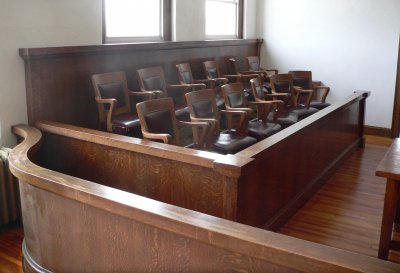Twenty-eight-year-old Bryan Kohberger has been officially indicted by a grand jury in Idaho for killing four University of Idaho students in their off-campus home in November 2022.
Isn’t he already in jail? Why indict someone who has already been charged?
We are glad you asked. One reason to indict him even though he has already been charged may be that the intense media coverage the case has received could lead to accusations of a tainted jury pool. Grand jury hearings are private and everything they review is under seal. While we can make educated guesses about the evidence collected aside from what has already been reported in the media, only those involved with the grand jury procedures have full access.
Additionally, the names of witness called during the grand jury proceedings are being kept confidential. This is extra helpful as many witnesses have already been harassed both in person and online according to writer Sally Krutzig of The Idaho Statesman.
As to why the prosecutors are using a grand jury instead of waiting for a preliminary hearing, criminal defense attorney Duncan Levin shared the following information with the Idaho Statesman:
“Grand jury proceedings offer greater secrecy, allowing prosecutors to present sensitive evidence and witness testimonies without compromising ongoing investigations or witnesses’ safety. Additionally, grand juries can be impaneled for an extended period, giving prosecutors more time to gather evidence and testimony, especially if some witnesses may be uncooperative or require subpoenaing.”
As a result, the hearing scheduled for June has been canceled. It is important to keep in mind that although Kohberger remains the sole individual accused of this heinous crime, our criminal justice system hinges on on the presumption of innocence until proven guilty.
Here is more information on how a grand jury operates:
The Role of the Grand Jury
In certain legal systems, the grand jury serves as an additional layer of protection for individuals accused of crimes. The grand jury is a group of citizens who are summoned to review the evidence presented by the prosecution. Their role is to determine whether there is enough evidence to support the formal charges against the accused. Unlike a trial jury, which decides on guilt or innocence, a grand jury focuses solely on the evidence’s sufficiency.
Grand Jury Process
During the grand jury proceedings, the prosecution presents the evidence they have gathered during the investigation. This may include testimonies, documents, physical evidence, or any other relevant information. The grand jury listens to the prosecution’s case and evaluates the evidence presented.
Determining Probable Cause
The grand jury’s decision hinges on the concept of probable cause. This standard requires the grand jury to determine whether there is enough evidence to reasonably believe that the accused committed the crimes they are being accused of. The grand jury does not need to establish guilt beyond a reasonable doubt, which is the standard used in a trial, only that there is enough evidence to believe the accused is guilty.
Indictment or Dismissal
The grand jury reaches a decision based on the evidence presented. If they find that there is sufficient evidence to support the charges, they issue an indictment. An indictment is a formal document that outlines the specific charges against the accused, which will then proceed to trial. On the other hand, if the grand jury determines that the evidence is insufficient, they may dismiss the case, and the accused will not face formal charges.
Implications of Indictment
An indictment signifies that the legal system has deemed the evidence presented by the prosecution to be substantial enough to warrant a trial. It does not imply guilt or innocence but marks the transition from the investigative phase to the adversarial trial process. The accused will have an opportunity to present their defense and challenge the prosecution’s case during the trial.
Is the process different in Idaho?
Another important question – Idaho does indeed have has certain characteristics in its justice and legal system that differentiate it from other states in terms of criminal law.
Here are a some key points and terms specific to Idaho’s judicial system:
Idaho Code
Criminal laws in Idaho are governed by the Idaho Code, which outlines the statutes and regulations specific to the state. These laws define various offenses, their classifications, and the associated penalties. It is essential to consult the Idaho Code to understand the intricacies of criminal law in the state.
Sentencing Guidelines
Idaho follows a structured sentencing approach, which provides guidelines for judges to determine the appropriate sentences for convicted individuals. The Idaho Sentencing Commission develops and updates these guidelines to promote consistency and fairness in sentencing.
Death Penalty
Idaho is one of the states that retains the death penalty as a potential punishment for certain serious crimes. Capital punishment is available for first-degree murder cases with specific aggravating factors. The legal process and requirements for imposing the death penalty are outlined in Idaho statutes.
Drug Laws
Idaho has its own set of drug laws, which regulate the possession, sale, and distribution of controlled substances within the state. These laws classify drugs into different schedules and specify the associated penalties for violations.
Self-defense Laws
Idaho has a “Stand Your Ground” law, which grants individuals the right to use reasonable force, including deadly force, to defend themselves or others from threats or unlawful acts. The law eliminates the duty to retreat in certain circumstances, allowing individuals to defend themselves in their homes or other places where they have a legal right to be.
Gun Laws
Idaho has relatively lenient gun laws compared to some other states. The state recognizes the right to bear arms, and individuals can openly carry firearms without a permit in most public places. Additionally, Idaho has provisions for concealed carry permits, allowing individuals to carry concealed firearms with proper licensing.
Source
Bryan Kohberger indicted by grand jury in Moscow killings. June hearing canceled


